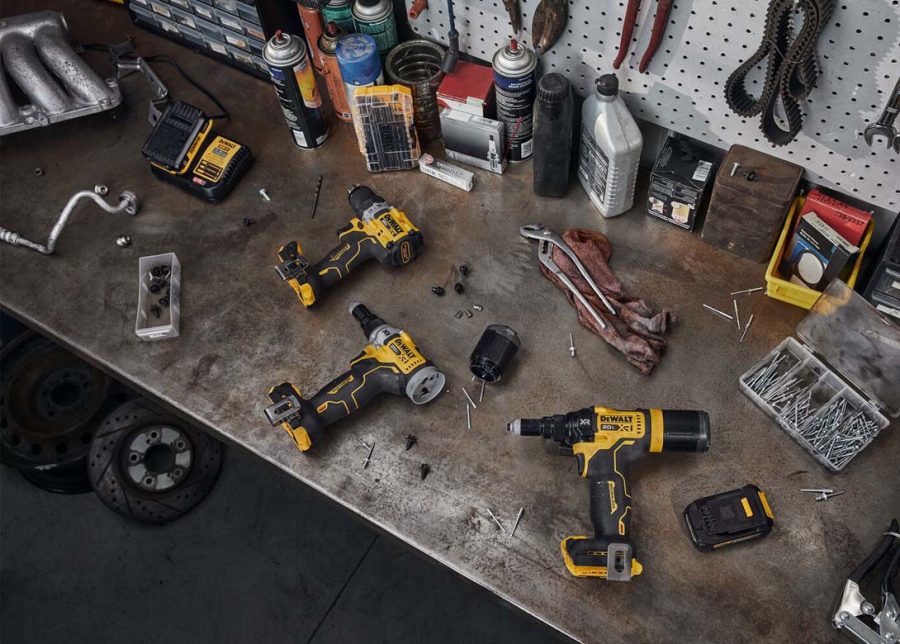In your workshop, having the right power tools is crucial for home improvement or construction tasks. But with so many options out there, it can be difficult to know which ones to pick and how to compare their qualities. Luckily, this guide is here to simplify the process. Here are 14 essential factors to consider when shopping for power tools, ensuring you’re equipped with everything you need for successful projects.
Brand and Quality

When investing in power tools, it’s crucial to prioritise brand reputation and quality. Choosing reputable brands ensures reliability and performance. For instance, Dewalt is a well-known brand that produces a wide range of tools. You can access everything you need for your projects by exploring Dewalt power tools Australia-wide. Whether you’re a professional tradesperson or a DIY enthusiast, Dewalt’s extensive lineup caters to various needs and skill levels. Plus, the convenience of online shopping means you can easily find Dewalt power tools in Australia through numerous retailers who offer their products.
With Dewalt, you can have peace of mind knowing that your tools are efficient, functional, and capable of tackling tasks of varying difficulty. From cordless drills to circular saws, Dewalt’s commitment to innovation and durability ensures that you’re equipped with tools that not only meet but exceed your expectations.
Intended Use and Size

Before buying a tool, consider both its intended use and size. For woodworking projects, you may require specific power tools such as a circular saw for precise cuts or a random orbit sander for smooth finishes. Similarly, for home construction tasks, tools like a cordless drill for fastening, a circular saw for cutting lumber, or a framing gun for assembling structures might be essential. Understanding how you plan to use the tool is vital for selecting the right one to meet your needs effectively.
Additionally, pay attention to the size of the tool, as it can impact its usability and maneuverability in various spaces. Ensure the tool’s dimensions are suitable for the tasks you have in mind and compatible with your workspace. By considering both the intended use and size of the tool, you can make a well-informed decision and choose a tool that best fits your requirements.
Power Source

Power tools come in two main types: corded (electric) and cordless (battery-powered). When deciding on a power source, consider factors such as portability, convenience, and available power outlets. Corded tools provide continuous power but may limit mobility, whereas cordless tools offer flexibility but require battery recharging. Assess your needs and workspace conditions to determine the most suitable power source for your tasks.
Features and Specifications

It’s also important to pay close attention to the available features to ensure you get the best tool for your needs. Look for options with variable speed settings, adjustable depth or angle capabilities, and brushless motors, particularly for cordless models, as these features can enhance performance and versatility. Additionally, prioritise safety features like blade guards and trigger locks to mitigate potential hazards during use. Before making a purchase, thoroughly assess the tool’s specifications to confirm they align with your requirements for power, speed, and capacity. It’s also helpful to read reviews and compare different models to make an informed decision.
Durability and Construction

Durability and construction are paramount considerations when shopping for power tools, and Dewalt is a brand renowned for its commitment to both. That said, make sure to look for Dewalt power tools with sturdy construction and durable materials that can withstand heavy use and rough conditions. Signs of a well-built tool include metal gear housings, reinforced handles, and impact-resistant casings. Investing in Dewalt ensures longevity and reliability, minimising the need for frequent replacements and ultimately saving you money in the long run.
Motor

When evaluating a power tool, you should also consider its type of motor, particularly whether it is a brushless or brushed motor. Brushless motors offer several advantages over their brushed counterparts, including increased efficiency, longer lifespan, and reduced maintenance requirements. They also tend to generate less heat and noise during operation. While brushless motors may come with a higher upfront cost, their performance benefits often justify the investment, especially for heavy or frequent use.
Price and Budget

Considering price and budget is crucial when purchasing power tools. While quality is important, it’s essential not to overspend on features that you may not necessarily need or use. Set a budget before shopping and stick to it to ensure you don’t exceed your financial limits. Compare prices from different retailers and consider purchasing during sales or promotions to maximise savings without compromising quality. Remember, it’s possible to find a balance between affordability and quality when shopping for power tools.
Compatibility and Accessories

Before finalising your purchase of a power tool, make sure to check its compatibility with any existing accessories, attachments, or batteries you may already own, especially if they’re from the same brand or system. Doing so can help you maximise the utility of your existing tools and accessories, potentially saving you money and avoiding unnecessary duplication. Additionally, consider the availability and cost of additional accessories or replacement parts for the tool. Opting for a tool with readily available accessories and parts can simplify future maintenance and upgrades, enhancing the overall value and longevity of your investment in the power tool.
